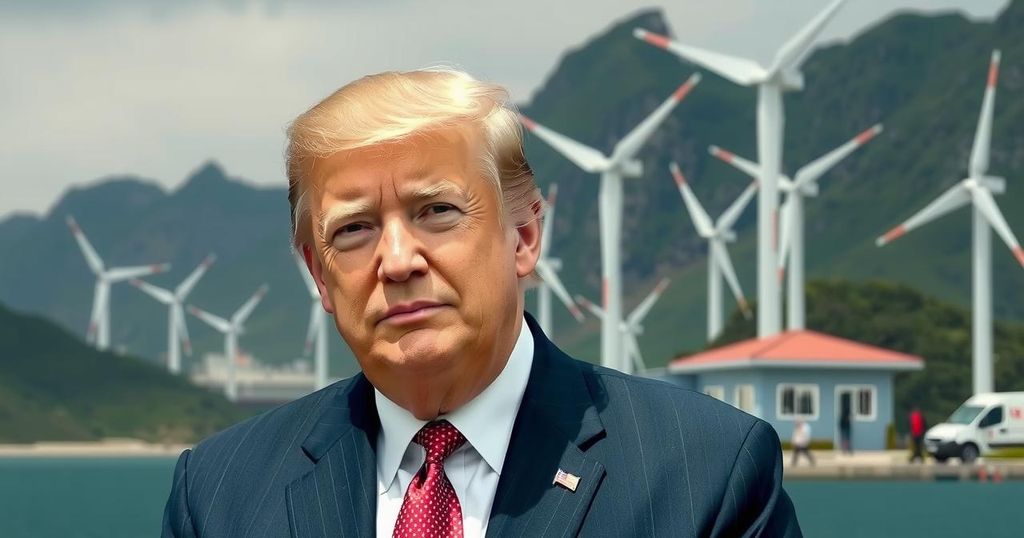As Donald Trump takes office, his fossil fuel-centric policies may undermine U.S. leadership in global climate initiatives, allowing China to expand its dominance in renewable energy markets. Experts warn that such a shift may jeopardize ongoing efforts to combat climate change, heightening risks for severe environmental impacts as international collaboration falters.
As President Donald Trump prepares to assume office, his imminent policies pose a significant threat to global efforts against climate change. His administration’s focus on fossil fuels and dismissal of renewable energy could leave the United States isolated in climate negotiations, prompting nations like China and the European Union to forge ahead without U.S. leadership. Such a shift potentially allows China, the world’s largest carbon emitter, to drastically expand its influence in renewable energy markets, having already taken a leadership role in solar and wind production.
China has aggressively pursued renewable energy investments globally, particularly within developing nations, while the U.S. appears set to recede from its prior commitments to climate action. Experts speculate that this transition may harm not only global climate initiatives but also America’s competitive edge in renewable technologies. Even with this potential regression, robust international efforts may continue as countries recognize the urgent necessity of tackling climate change.
Furthermore, projections indicate a challenging road ahead to limit global warming to 2 degrees Celsius, with critical implications for future climate stability. The U.S. under Trump’s leadership risks becoming marginalized in global climate discourse, as other nations expand their renewable sectors, prioritizing energy security and efficiency in response to an increasingly pressing environmental crisis. The specter of more severe climate impacts looms, with each year of stagnation in climate policymaking upping the stakes for global communities.
The United States has long been a key player in international climate negotiations, often leading efforts to combat climate change. However, the impending presidency of Donald Trump is expected to alter this trajectory significantly. His alignment with fossil fuel industries and skepticism towards renewable energy could hinder global initiatives aimed at reducing greenhouse gas emissions. As the U.S. withdraws from key agreements like the Paris Accord, other global powers, particularly China, are poised to seize the leadership role in renewable energy.
In summary, the upcoming presidency of Donald Trump signals a potential regression in U.S. climate policies, affecting not only domestic energy strategies but also international relations in the realm of climate action. As the U.S. retreats, countries like China are set to dominate renewable energy markets and leadership, reinforcing the urgent need for global climate collaboration. Failure to act decisively against climate change raises the risk of severe environmental consequences that will affect every nation.
Original Source: www.rollingstone.com






